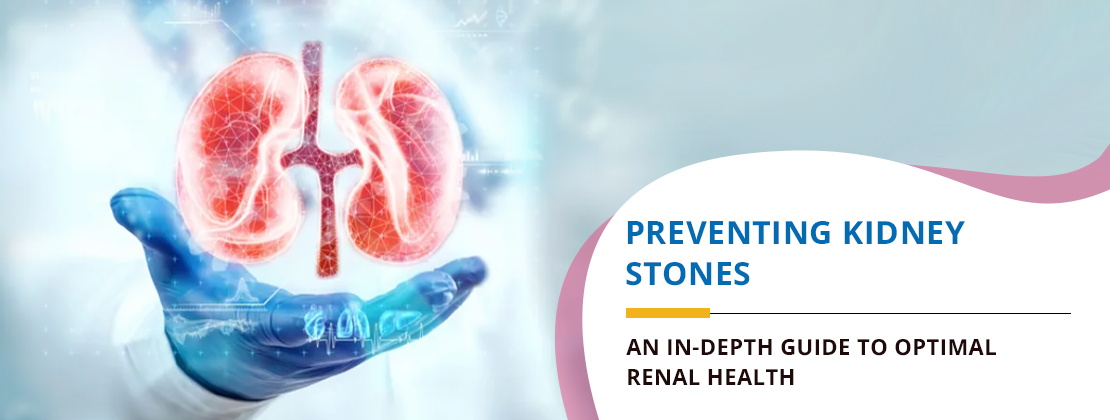
Home / Blog / Preventing Kidney Stones: An In-depth Guide to Optimal Renal Health
Understanding the essence of kidney stones forms the groundwork for effective prevention. Kidney stones are essentially solid crystalline deposits, primarily composed of minerals and salts. Originating within your kidneys, they can range vastly in size. Some might be as minute as a speck of sand, while others could grow to the size of a small pebble.
The danger posed by kidney stones primarily stems from their potential to cause a urinary tract blockage. Depending on the stone’s size and location, this could lead to severe pain and a plethora of other complications.
Steering clear of kidney stones begins with a thorough understanding of their risk factors. Multiple elements can elevate the risk of developing kidney stones:
Dehydration: Insufficient water intake tops the list of kidney stone risk factors. When your body lacks adequate fluids, substances that can potentially form kidney stones, like calcium and oxalate, become more concentrated in the urine.
Diet: Certain diets that are high in protein, sodium, and sugar may increase your risk of some types of kidney stones.
Obesity: High body mass index (BMI), large waist size, and weight gain have been linked to kidney stones.
Medical Conditions: Some medical conditions have a higher risk of kidney stones, including renal tubular acidosis, cystinuria, hyperparathyroidism, and certain gastric and intestinal surgery.
Supplements and Medications: Certain dietary supplements and medications, such as decongestants, diuretics, and protease inhibitors, can increase your risk.
Water serves as the frontline defense against the development of kidney stones. As it dilutes the concentration of stone-forming substances in your urine, it significantly reduces their ability to crystallize and form stones. Strive to drink at least 8-10 glasses of water per day. You may need to increase your fluid intake if you live in a hot climate or exercise frequently.
Your diet can dramatically influence the likelihood of kidney stone formation. Here are some diet modifications that can help prevent kidney stones:
Reducing Sodium Intake: High sodium intake can increase the amount of calcium your kidneys have to filter, elevating the risk of stone formation. To combat this, you should limit your sodium intake by avoiding processed foods and sticking to natural sources of sodium.
Limiting Animal Protein: Animal protein sources such as red meat, poultry, eggs, and seafood can raise the level of uric acid in your body, a common precursor to kidney stones. Opting for a balanced diet can help mitigate this risk.
Increasing Calcium Intake: It may seem counterintuitive, but increasing your calcium intake can actually help prevent kidney stones. Dietary calcium binds with oxalate in the gut, thereby reducing the amount of oxalate available to form stones in your urine.
Despite diligent adherence to lifestyle modifications, some individuals may require medical intervention to prevent kidney stones effectively. This often entails medication that lowers the levels of stone-forming substances in the urine.
Effectively managing and preventing kidney stones necessitates a comprehensive approach that marries lifestyle modifications with medical treatment. At HCG Hospitals in Ahmedabad, our Department of Nephrology is equipped to provide expert care and guidance on your journey towards optimal renal health.
Our proficient team of nephrologists is prepared to offer tailored prevention strategies to suit your unique needs. Regular check-ups facilitate early detection of renal issues, ensuring timely and effective treatment.
Never forget that your renal health should always be a priority. Don’t hesitate to reach out to us at HCG Hospitals for a comprehensive consultation. Your health lies in your hands, but when you need assistance, remember that our Department of Nephrology is always here to help.